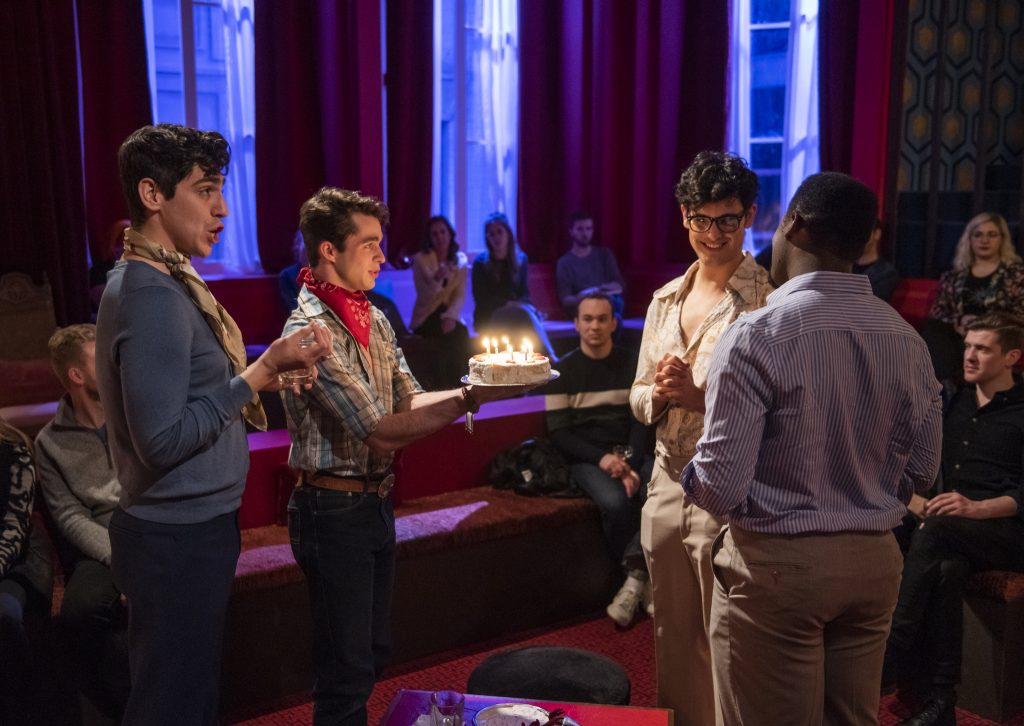
Time and a change of perspective can allow you to appreciate things you once abhorred. That maxim can be true of many things. Music, art, food. People. It was true of Boys in the Band. When Mart Crowley’s 1968 bombshell of a play rolled out on celluloid in 1970, it rightfully caused the world to shutter. Never had anyone so boldly pulled back the curtain to reveal the inner-life of the dispossessed as vividly or as candidly as Mr. Crowley had done. Now celebrating its 50th anniversary, people are still wondering how accurate his painful picture of gay life is.
Having recently experienced the very fine Windy City Playhouse immersive take on the play, there’s no doubt many will be wondering the same thing 50 years from now.
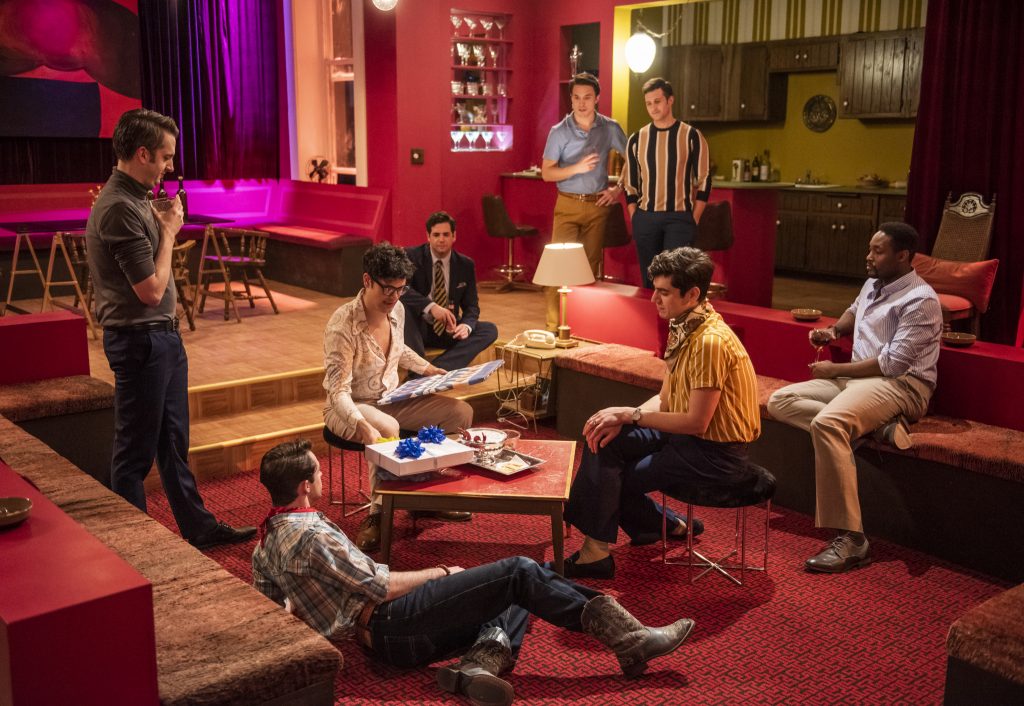
Listening to Mr. Crowley talk about how he came to write his landmark; how he was broke, out of work, without prospects and angry, the cathartic aura surrounding the play was finally given a cause. Still, because you don’t expect friendship to take on such ruthlessly hurtful dimensions, those explanations don’t satisfy the question of intensity or the depths of some the play’s caustic plunges.
William Boles scenic design played a key role in helping to provide the audience a tactile understanding of the times, place and people at this dark birthday party Michael (Jackson Evans) was throwing for his newly 32-year-old best friend Harold. Ushered six at a time through a tastefully appointed residential lobby and taken up the pretend elevator to the 5th floor, the audience enters Michael’s resplendent apartment as if they themselves were guests. The party hadn’t started. Michael wasn’t there. You could walk around and admire his beautiful spirit decanters. The lovely artistic touches. The drama of the sunken conversation pit. 70s chic at its highest. All in deep red with accents in gold and in blue. The room radiated not only success, but power.
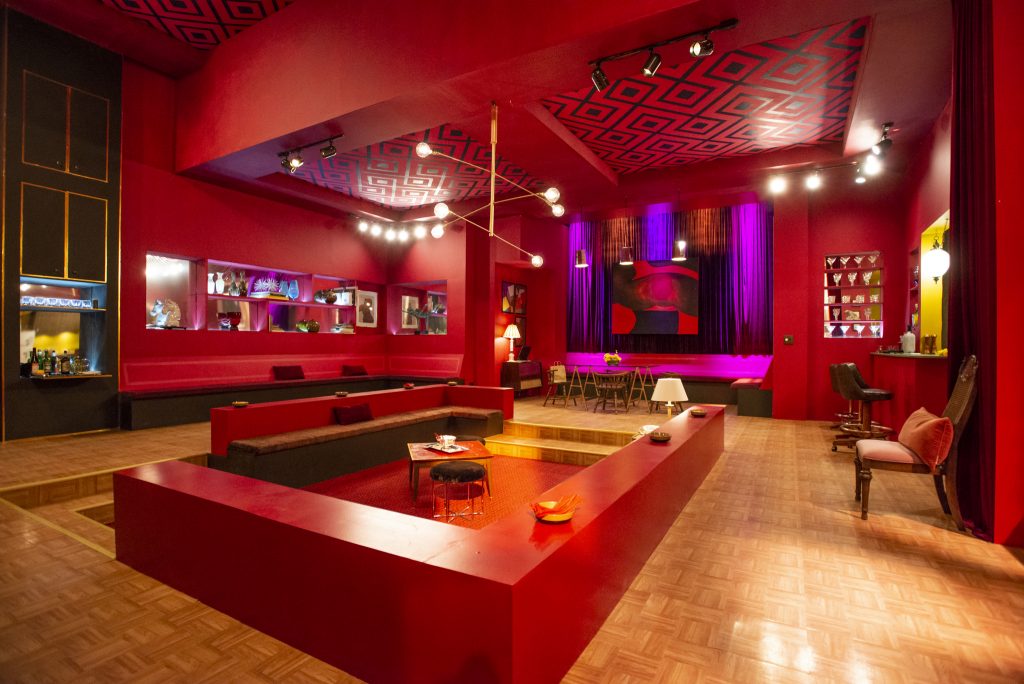
After everyone’s settled, Michael sweeps in doing last minute party preparation things. Putting the food out and the music on. You notice that even when the first guest, Donald (Jordan Dell Harris) arrives, things aren’t particularly warm. Nor are you immediately clear on Michael and Donald’s relationship. They’re more than just friends but not exactly lovers either? And even though Donald’s sparring skills are impressive, Michael seems to take pleasure in baiting him with petty criticism. Everyone else flows in shortly after Donald goes up to change. Emory (William Marquez) and Bernard (Denzel Tsopnang) arrive together. Lovers Larry (James Lee) and Hank (Ryan Reilly) are carrying the vestiges of a something bitter between them into the party. It’s a spat that will continue to swell throughout the play. Then Harold’s birthday present gets there much too early. A prostitute, Cowboy is as dull witted as he is beautiful. Even though he’s taunted by nearly everyone for his lack of intelligence, he’s also silently envied for his physical exceptionalism. And there’s a straight outlier in the mix. Michael’s close friend from college, back in a time when he was still in the closet, was in town and needed to see him. So much so that he wept with desperation when talking to Michael on the phone. Not being able to dissuade him, Michael invited Alan (Christian Edwin Cook) to the party as well, hoping to somehow camouflage the party’s gay complexion.
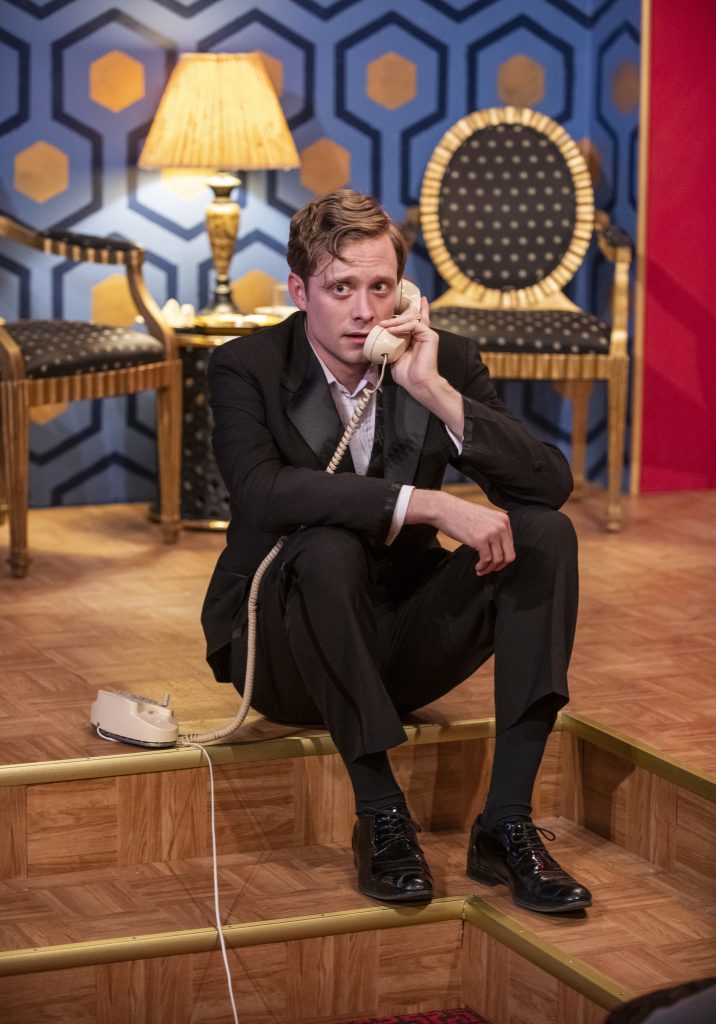
The dynamics of the party are already roiling by the time he shows up. Emory is being quintessential Emory. So gay. Not defiantly; more in a liberation of self sort of way. His racial digs at Bernard, the only Black member of the party, were unsurprisingly catty but very curious. Were these swipes supposed to be expressions of the times are something else? Marquez made a splendid Emory. Later, when he apologized to Bernard for his callousness, promising not to cause such conscious hurt in the future, he was contrite enough and sincere enough to be ingratiatingly convincing. Which highlights one of key joys of the play; it’s exceptional casting. The spat that would not die between Hank and Larry centered on Larry’s inability, in fact his refusal, to be faithful to Hank; who had left his wife and children to be with him. Both James Lee as Larry and Ryan Reilly as Hank deliver a lot of honesty in their portrayals of what two people, who genuinely love one another, are willing to sacrifice to conquer an imposing barrier together.
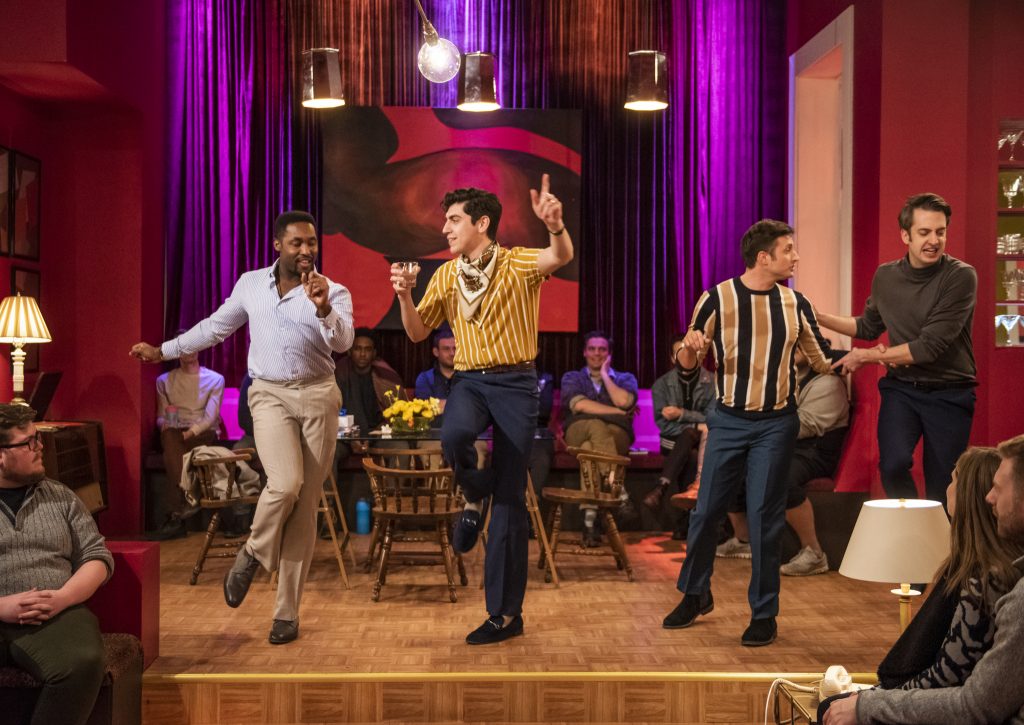
Christian Edwin Cook’s characterization of Alan, Michael’s straight friend, proved the most surprising because of the voice director Carl Menninger chose for him to use. He spoke with the diction and phrasing characteristic of blue bloods in the era when the Carnegies and Vanderbilts were flying high. His speech alone set him apart from everyone else at the party. Emory’s effeminacy however brought out his bile and even pushed him to violence. His punishment: he must remain at the party.
Unfortunately, Tsopnang’s Bernard was the least developed of the eight central characters. When Michael comes up with his insidious parlor game of calling the person you’ve always in your heart-of-hearts truly loved, and telling them your feelings for them, Bernard’s the first to gamely take up the challenge. It was only then did we catch a tiny glimpse of his inner core. By this time, everybody had had enough liquid courage to consider doing something so exposing and so ripe for humiliation. Who Bernard chose to call was also marked by the kind of class and race disparities that shout futility.
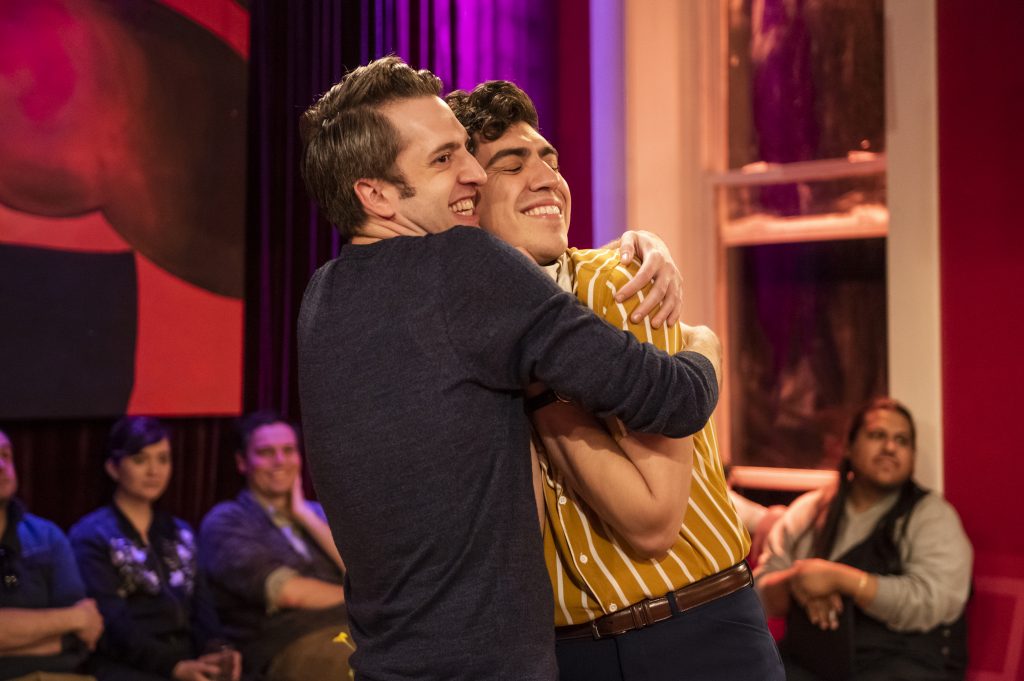
Harold (Sam Bell-Gurvitz) had grandly made his infamous “32-year-old, ugly, pock marked Jew fairy” entrance by the time the game was in full swing. Despite it ushering in the possibility of something positive for Larry and Hank, as it continues, the game seems to dredge up nothing but pain. Michael’s adamancy about playing it turns pathological when you realize he’s the only one not drunk. He’s been on the wagon for five weeks and therefore without an excuse for insisting that everyone take this wanton drive off a cliff. When it back fires, sorrow for him does not exist. And when he makes his plea like statement, “If we could just not hate ourselves so much”, you wonder why he doesn’t just direct that question to himself.
Stonewall happened just one year after The Boys in the Band premiered off Broadway. Led by a fistful of outraged fed-up drag queens, another landmark, gay pride, was born. It’s fascinating to look at these two milestones side by side. Whether you consider them a “before and after” or a continuum, they both are about community; with all the complexity the word embodies.
Under Mr. Menninger’s enlightened direction, and mounted on Mr. Boles sensational set, Windy City’s staging of The Boys in the Band has proven a highpoint in the theater season. It’s also an ideal example of how well an immersive approach to theater aids in fully absorbing a captivating story.
The Boys in the Band
Through April 19th, 2020
Windy City Playhouse
3014 Irving Park Rd.
Chicago, IL 60618
windycityplayhouse.com